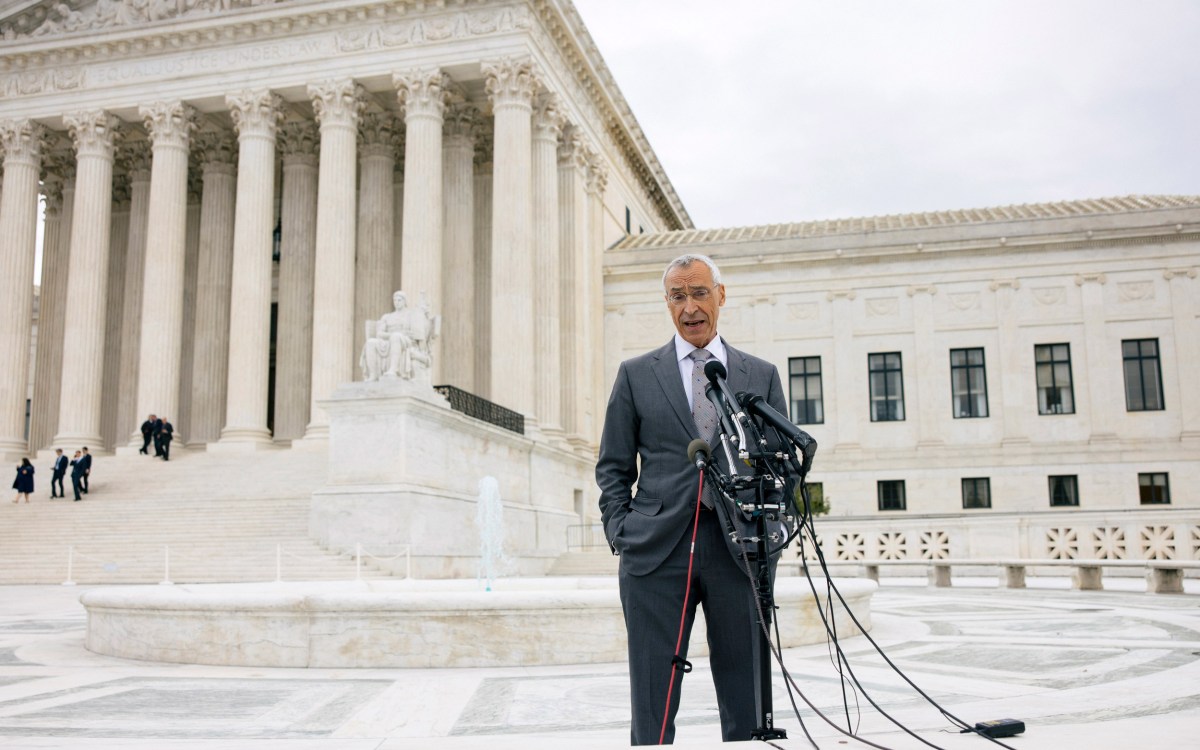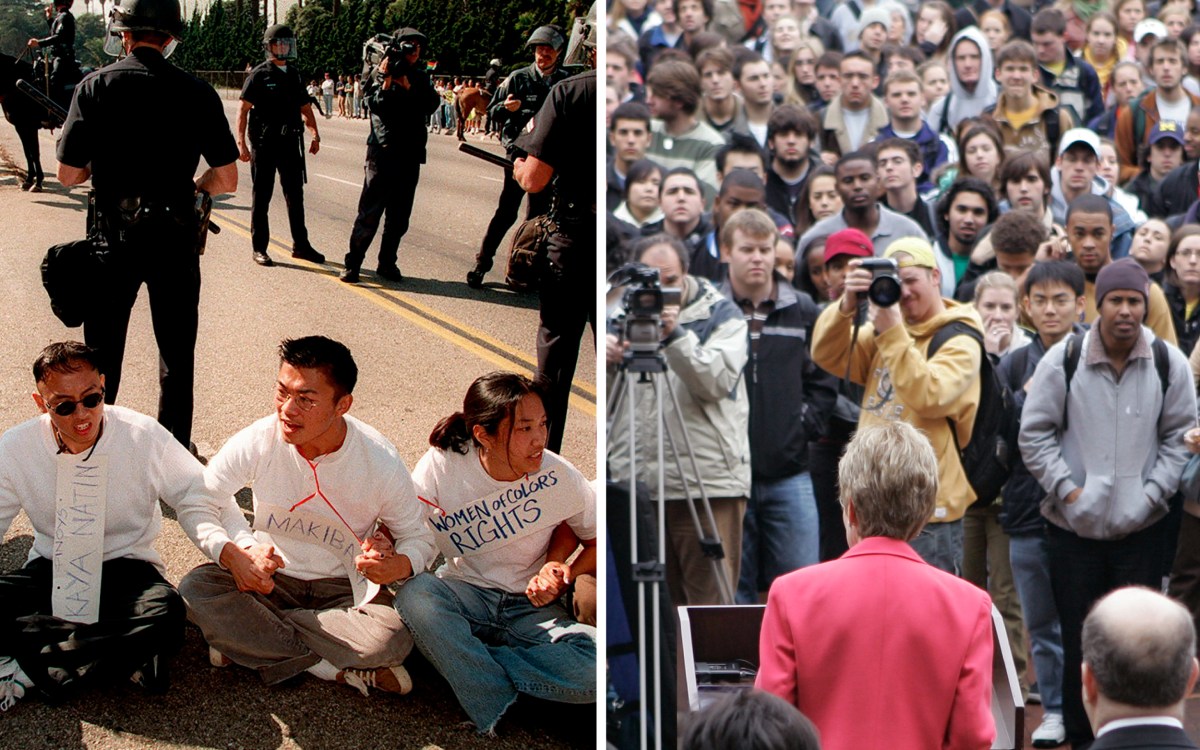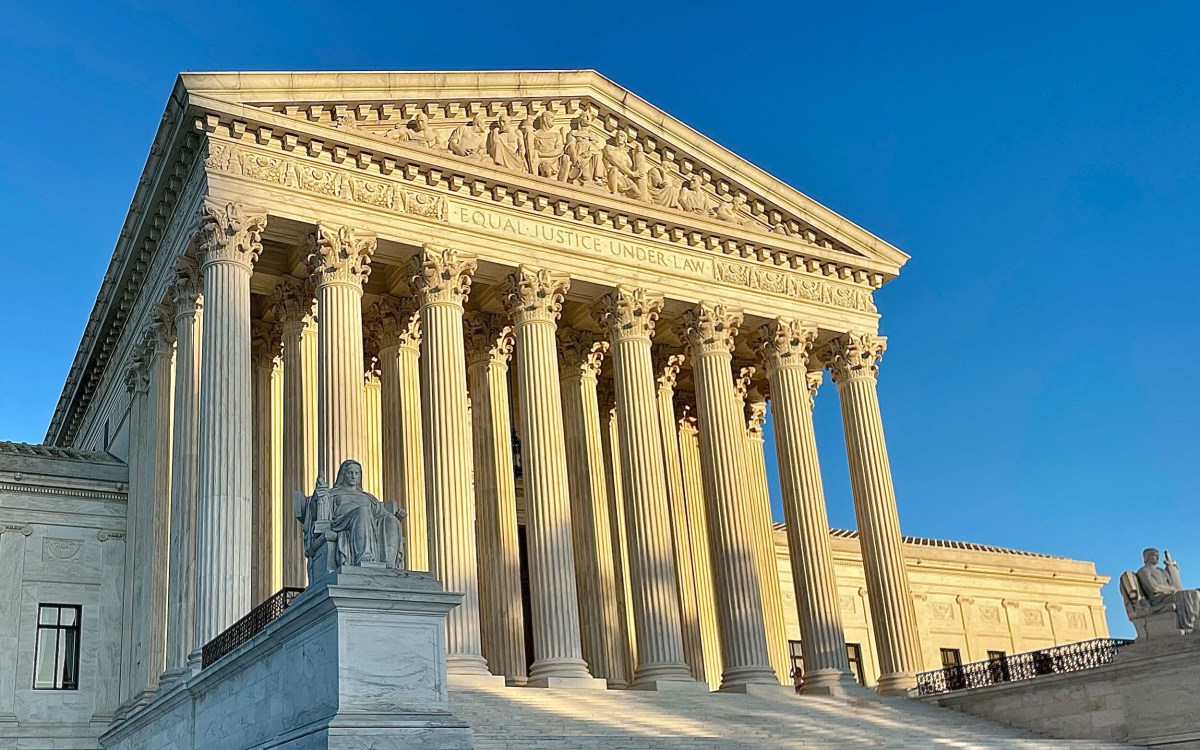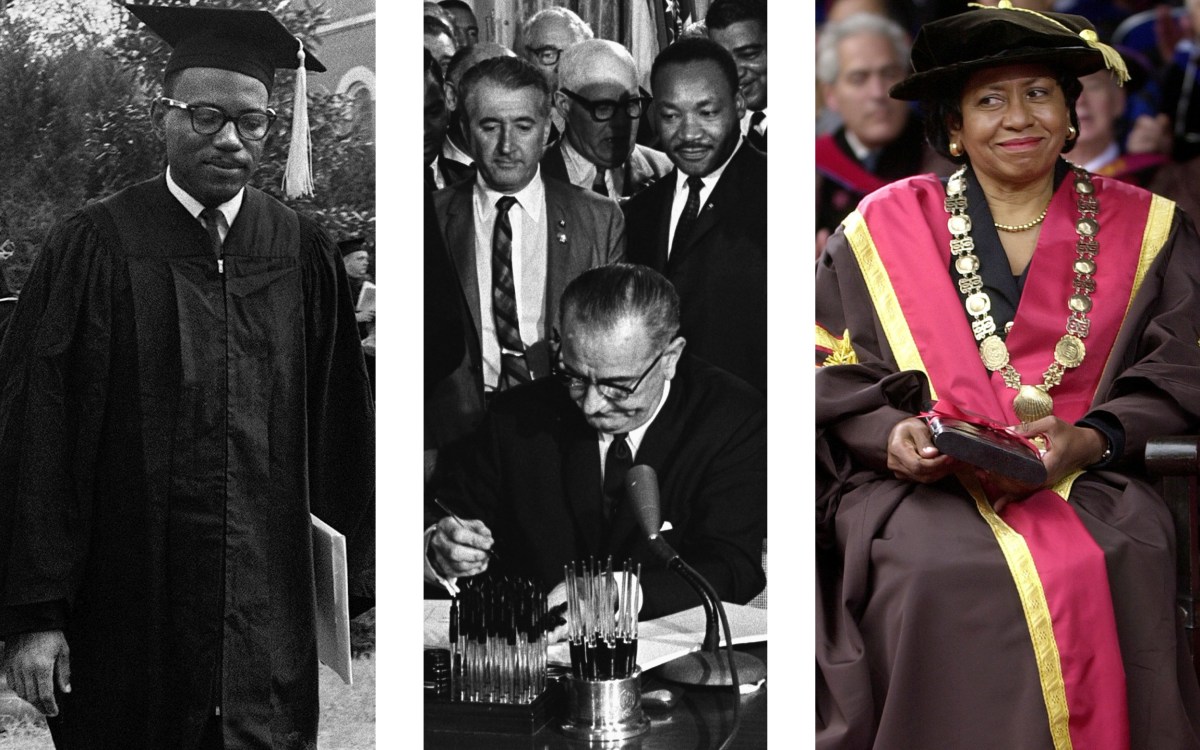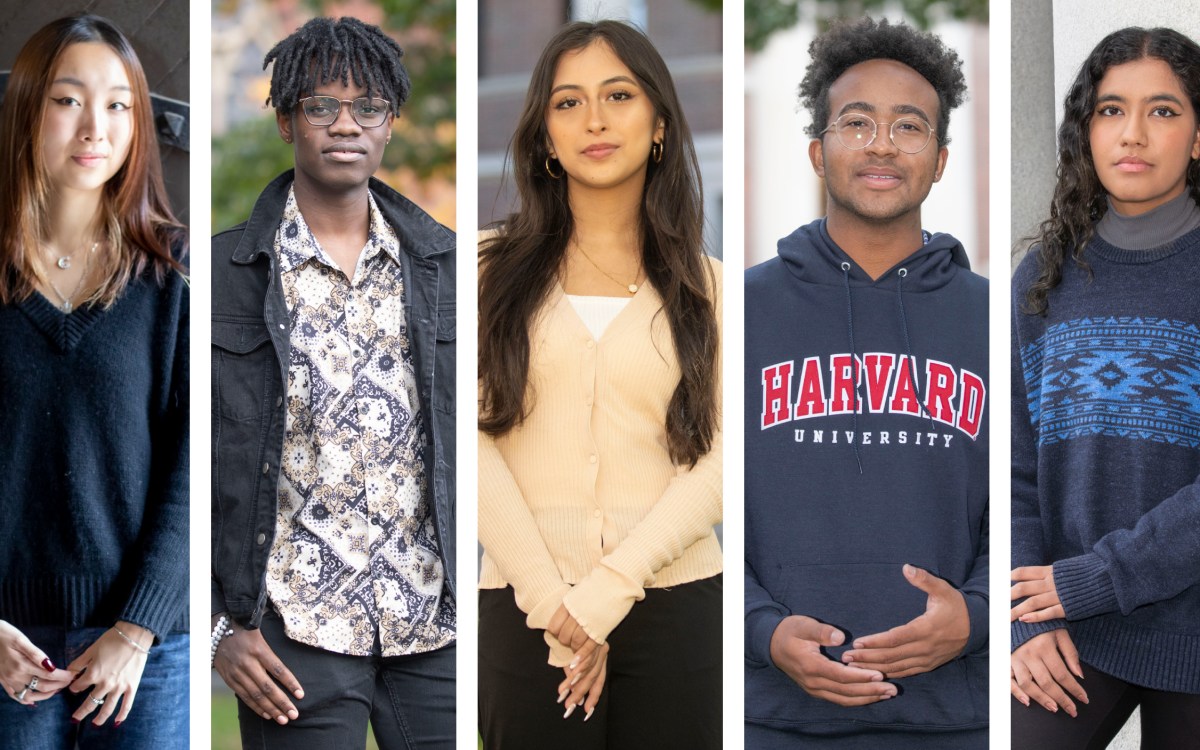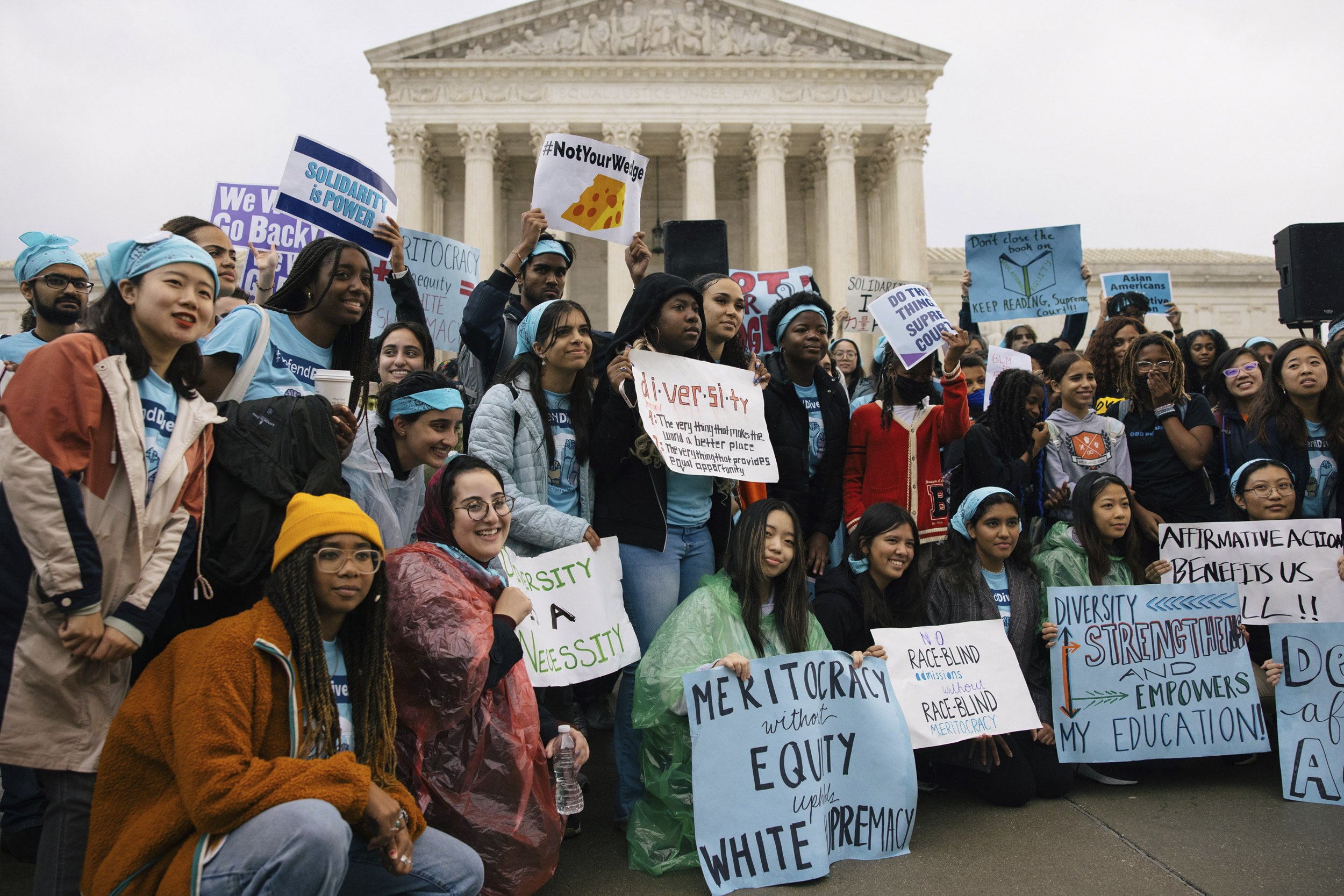
A group of Harvard students traveled to D.C., rallying outside the Supreme Court during Monday’s arguments.
Photos by Alyssa Schukar
‘Defend Diversity’
Harvard students join others from around nation in Supreme Court rally supporting race-conscious admission policies
WASHINGTON — Scores of students from Harvard and elsewhere, dressed in light blue “Defend Diversity” T-shirts and bandanas, held signs saying, “Not Your Wedge,” “Affirmative Action Is Not Checking a Box,” and “We Will Not Be Used” as they cheered speakers from civil rights and affirmative action advocacy groups on the steps of the Supreme Court on Monday.
Inside, justices heard five hours of arguments in two lawsuits that could decide the future of diversity on college campuses across the country. The cases were brought by Edward Blum, a critic of affirmative action, and his group, Students for Fair Admissions. They allege that race-conscious admissions policies at Harvard and the University of North Carolina are unconstitutional, and they seek to upend more than four decades of Supreme Court precedent allowing institutions of higher education to consider race as one factor among many in evaluating applicants.
Angie Shin ’23 said the rallygoers are looking beyond what happens in court. “We are building a coalition and a movement among college and university students across the country, making sure that we have a power base in place so that campuses and the country will be mobilized to fight for race-conscious admissions and for support for students of color.” Demonstrations in support of the Harvard and UNC cases took place both Sunday and Monday, with Monday’s event organized by the NAACP Legal Defense and Education Fund.
Harvard President Larry Bacow wrote to the wider community Monday about his personal views on the subject. “Whatever promise we hold as individuals — for ourselves and for our world — is not predicated on narrowly structured measures of academic distinction,” he said. “When Harvard assembles a class of undergraduates, it matters that they come from different social, economic, geographical, racial, and ethnic backgrounds. It matters that they come to our campus with varied academic interests and skill sets. Research and lived experience teach us that each student’s learning experience is enriched by encountering classmates who grew up in different circumstances.”
“This case doesn’t just impact a small proportion of students who are applying to competitive colleges and universities, this case will determine who has access to the networks of opportunity that are primarily gatekept at these competitive and elite institutions,” said David E. Lewis ‘24.
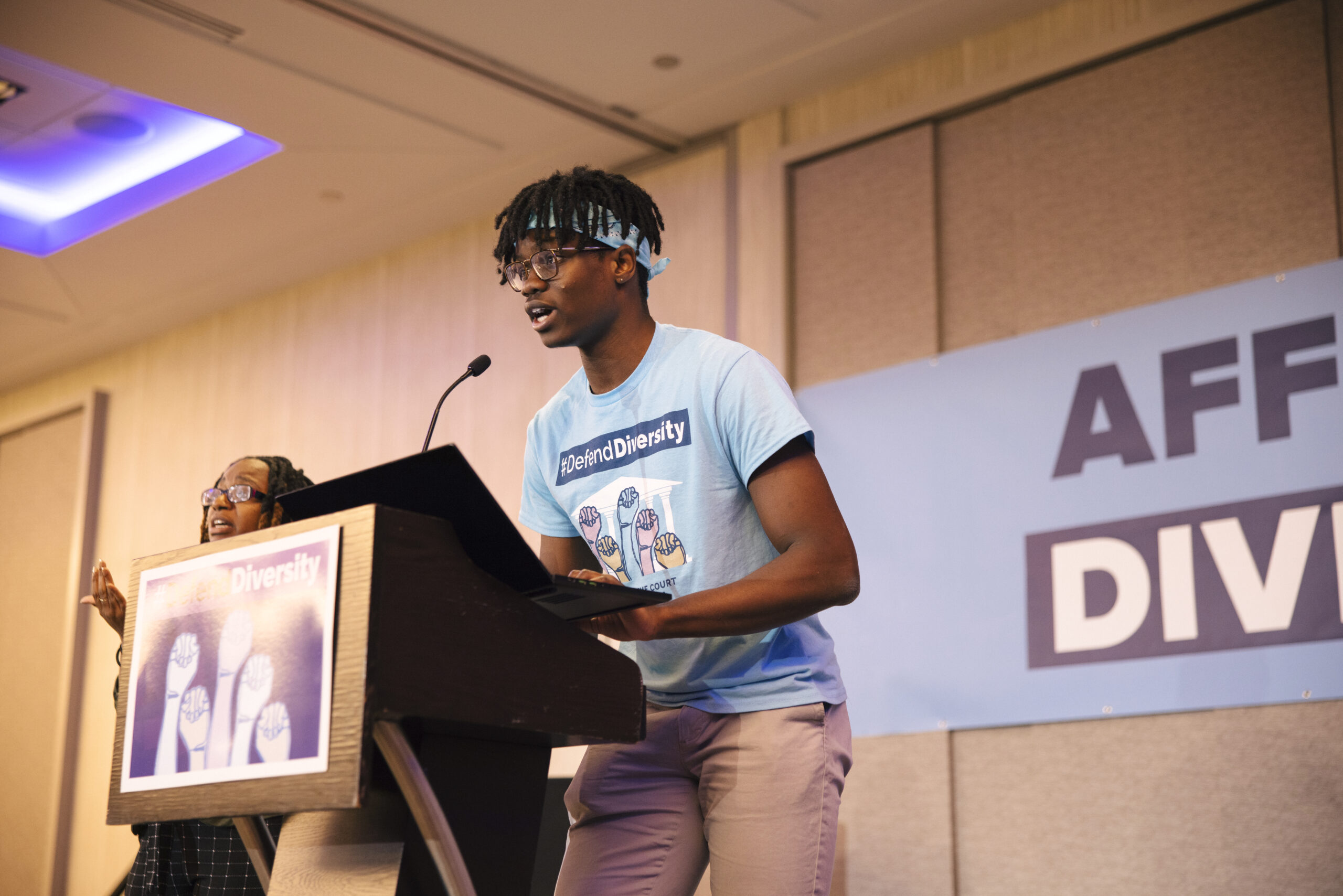
In a message to faculty and staff Monday evening, Claudine Gay, Edgerley Family Dean of the Faculty of Arts and Sciences, said while she couldn’t offer assurances about what the court will decide, “… what I can tell you is this — our institutional commitment to nurturing a thriving, diverse intellectual community remains unchanged. It is essential to who we are, to the mission that we are here together to pursue, and our academic excellence depends on it. No matter the outcome, the work of that institutional imperative will continue.”
A large contingent of Harvard students traveled from Cambridge to Washington, D.C., gathering at a downtown hotel Sunday afternoon to share their experiences and views on diversity and the court case and prepare for the Monday events.
“This case doesn’t just impact a small proportion of students who are applying to competitive colleges and universities, this case will determine who has access to the networks of opportunity that are primarily gatekept at these competitive and elite institutions,” said David E. Lewis ’24. “And those people who gain access to those networks will, in turn, decide who gets further access and opportunity. So, it creates a cycle of opportunity. If the justices decide to get rid of affirmative action, they’ll be permanently and cyclically shutting for generations so, so, so many doors to people of color across this nation.”
Dozens of colleges and universities filed “friend-of-the-court” briefs last summer in support of Harvard and UNC’s admissions programs and stressed the educational and social importance of having broadly diverse student bodies on college campuses. If the court rules that race can no longer be considered, Black, Latino, and Native Americans student enrollment could decline sharply, research shows.
Besides risking the competitive advantages that the U.S. has from having a diverse, educated population and workforce, “We risk the personal growth that comes with being in diverse spaces” if the court outlaws affirmative action, said Lindsey Batteast, M.P.A. ’23, who was among the rally attendees Sunday and Monday. “You grow as an individual, when you see that the person next to you, who may, from a visual standpoint, look different from you, is actually very similar to who you are, and can have similar perspectives or different perspectives that help you personally grow and also professionally grow.”
“What makes this nation beautiful is the diversity that exists within it, and when we come together and celebrate all the beautiful ways that we exist and our cultures and languages, we’ll only grow forward together as a country.”
Ayah al-Zubi ’23
Sisters Sara al-Zubi, M.P.P/M.D. ’24, and Ayah al-Zubi ’23 said reducing or eliminating race as a factor in admissions will have detrimental effects across society. To be ready for future pandemics, and for treatment of an increasingly diverse U.S. population, the country has to ensure it is training the next generation of medical professionals.
“The only way to do that is with diverse doctors that look like our patients and with a diverse health care system. That’s the only way we can make sure our public health care system protects all and removes inequities and disparities in health care,” said Sara al-Zubi.
Asked what she would want the justices to think about before reaching a decision on Harvard’s case, Ayah al-Zubi said, “I really hope that they recognize that what makes this nation beautiful is the diversity that exists within it, and when we come together and celebrate all the beautiful ways that we exist and our cultures and languages, we’ll only grow forward together as a country.”



